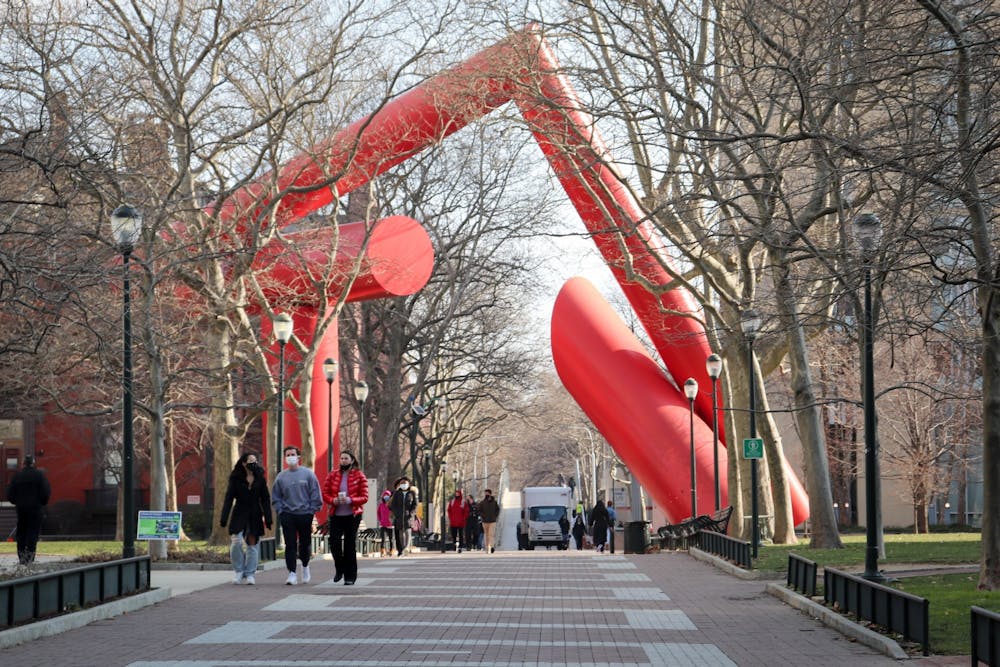Some first-generation, low-income students are optimistic that Penn inviting students back to campus this semester will help alleviate academic inequities seen last fall.
FGLI students largely praised Penn's decision to open campus after operating a remote fall semester, citing guaranteed University housing and food for on-campus housing residents. Students also said they look forward to meeting classmates and making connections, and first years added that they are glad to have taken their first steps on campus. Some, however, added that they are worried about the threat of COVID-19 on campus.
College first-year Toyosi Abu, who identifies as a FGLI student, said he felt optimistic about the spring semester because he found studying from home during the fall to be isolating. Abu said being on campus allows him to focus both on schoolwork and making connections with other students.
"For me personally, I think we're better being [on campus] this spring because not only do I not have to deal with the home situation and some of those concerns, just being able to meet people and have some sort of social impact and social interaction is really beneficial," Abu said.
Students arrived on campus between Jan. 10 and Jan. 17, with first years largely expressing excitement to finally step foot on campus. About 3,000 undergraduates are moving onto campus this semester, more than two-thirds being first years.
College sophomore Ryan Afreen, a FGLI Dean's Advisory Board member, echoed Abu's sentiments, adding that during the fall semester, FGLI students in particular had to balance school and economic struggles exacerbated by the pandemic. On-campus housing may provide relief from these worries and can give students a tangible support system, Afreen said.
"Staying home is not always the best option because of a lot of housing situations that many FGLI students have to face," she said. "Spring semester is different because you get to stay on campus, so now you have a roof over your head. You have your dining plan."
Some FGLI students reported they were concerned about academic equity and health in anticipation of the fall 2020 semester, citing issues like housing stability and access to wifi and academic resources.
RELATED:
A not-so-quiet Quiet Period: First years seen partying, breaking Penn’s COVID-19 guidelines
First years living off campus must break lease or request housing exemption for spring 2021
With the spring semester days away, here’s what you need to know about housing and dining
Days before fall 2020 move-in was set to begin, Penn announced it would close on-campus housing with limited exceptions for students with extenuating circumstances. Some students said they are afraid of another last-minute housing cancellation if the pandemic worsens, adding that it may be harder for FGLI students to adapt to sudden changes.
Wharton sophomore Annie Vo, who identifies as a FGLI student, said she signed a year-long off-campus housing contract after Penn students were asked to leave campus in March 2020. She said this would ensure that she had a stable place of residence in case the University reversed a future campus reopening plan.
"I can't just drop everything and move whenever Penn decides to change their mind last minute," Vo said.
Vo added that her off-campus housing situation has drawbacks that affect her studies.
"I don't have Penn Internet. I'm using the iffy Wi-Fi that I have and living in a building next to construction," she said. "It's hard to sleep when there's construction, or study when there's construction next door, and a band playing as well."
While many FGLI students were excited to live on campus this semester, some have decided to stay home due to health concerns.
College first-year and FGLIDAB member Melissa Murin opted to stay home during the spring semester to protect family members who are vulnerable, such as her grandmother who recently had surgery. She added that Penn must recognize that some students opted not to come to campus and must be vigilant in providing equal access to resources for them.
In addition to the risk of contracting COVID-19 themselves, FGLI students worried that activity on campus would compromise the health of the West Philadelphia area, which houses many low-income families and communities of color, who are most at risk for economic and health detriments.
“I just want to ask [students] who are on campus to actually obey rules and do what’s best for everyone,” Murin said.









